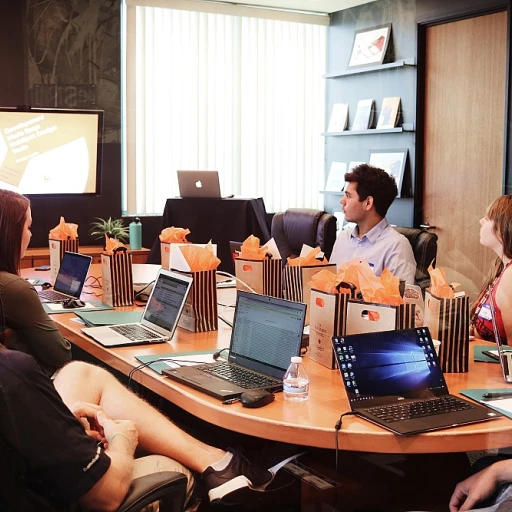
The Importance of Tier 3 Support in MSPs
The Crucial Role of Tier 3 in Managed Service Providers
In the realm of Managed Service Providers (MSPs), tier 3 support stands as the backbone of resolving complex technical challenges. This level of support is instrumental in ensuring customer satisfaction and maintaining credibility of the service desk. Offering services beyond the capabilities of lower tier supports, tier 3 teams are equipped to tackle issues that demand higher technical expertise.
Tier 3 help desk interventions require a deep technical support service management skill set. This support level encompasses handling escalations from tier 1 and tier 2 supports and providing resolutions to complex customer issues. The team is specially trained to address intricate matters that range from system bugs to detailed configurations of customer systems.
An MSP's tier 3 support team plays a critical part in safeguarding the organization’s service quality. They're accountable for ensuring that no customer's problem falls through the cracks, thus enhancing the overall customer experience. This desk support tier benefits from continuous training and resources, which keeps them abreast of ever-evolving technologies and methodologies.
For a more comprehensive understanding of how MSPs efficiently manage their service desk structures, explore how enhancing efficiency with site staffing solutions can strengthen customer interactions and support outcomes.
Key Skills Required for Tier 3 Support
Essential Skills for Advanced Desk Support
When considering the integral position of Tier 3 support within an organization, it becomes evident that possessing a unique set of skills is crucial for managing complex technical issues effectively. This tier demands expertise not only in technical realms but also in strong customer service orientation.
- Technical Proficiency: Tier 3 support is the backbone of any robust technical support structure. Professionals at this level must exhibit advanced technical knowledge to resolve intricate issues that lower support levels cannot handle. Being equipped with deep knowledge in system administration, network protocols, and troubleshooting methodologies is vital.
- Problem-Solving Ability: Tackling complex issues efficiently requires exceptional problem-solving skills. The ability to analyze intricate problems and develop innovative solutions distinguishes Tier 3 teams in the service desk realm.
- Exceptional Communication Skills: As intermediaries between tech support staff and customers, Tier 3 support professionals must convey technical information clearly and succinctly. Mastery in translating complex technical jargon into layman's terms enhances customer experience and helps in bridging the communication gap.
- Collaboration and Coordination: High-level support requires seamless collaboration with various support tiers and team members. Interactions with Tier 1 and Tier 2 staff to develop collective strategies for support interventions ensure efficient resolution of service requests.
- Service Management Acumen: Familiarity with IT service management principles guides the management of support operations, ensuring alignment with organizational goals and enhancing desk support efficiency.
Gaining these skills can elevate a student's career path in managed service providers. As the industry evolves, continuing technical education and real-world experience through internships or school programs can provide students a solid foundation in these core competencies. Organizations can explore temporary staffing solutions to bridge skill gaps and support tier teams in achieving their service targets. By addressing these critical areas, Tier 3 support teams can not only perform effectively but also significantly contribute to strengthening the entire support structure.
Challenges Faced by Tier 3 Support Teams
Overcoming Common Obstacles in Level Support Teams
Tier 3 support teams within MSPs frequently grapple with an array of challenges. As the most advanced support tier, they must manage complex issues that demand deep technical expertise. The management of these intricate problems often involves interventions beyond the capabilities of lower-level desks. Tier 3 support staff must also handle the burden of customer expectations. Clients often rely on this advanced support level when other tiers have failed to resolve their issues, making the role critical for maintaining positive customer relationships. Furthermore, tier help desk teams face pressure to deliver swift and efficient service interventions, as delays can heavily impact the organization’s service reputation. Another significant challenge lies in coordinating with other support tiers. A comprehensive understanding and effective communication across support levels are essential for ensuring successful resolutions. Technical support teams must have a structured escalation process and clear documentation to assist lower-level teams efficiently. Moreover, the growth of tech support demands and the rapid evolution of technology mean that tier support teams need continuous skill enhancement. Upskilling is vital to stay ahead, and fostering a culture of learning within the service management framework is crucial. By addressing these challenges proactively, MSPs can enhance their tier support operations, ultimately benefiting customer service and the overall customer experience. For further insights, check this post on the impact of effective third-party management in overcoming MSP challenges.Strategies for Effective Tier 3 Support Management
Optimizing Processes for Enhanced Team Performance
Effective management of Tier 3 Support is essential to ensure that the support team can handle complex issues without compromising service quality. A proactive approach to service management is key, where the organization anticipates potential challenges and implements appropriate interventions and strategies.- Efficient Resource Allocation: Proper allocation of technical support and help desk resources allows each support tier to focus on issues aligned with their expertise. This ensures that the technical support team can escalate only the most complex issues to Tier 3, preventing unnecessary overload.
- Continuous Training and Education: For Tier 3 Support, continuous learning is crucial. Regular workshops, training sessions, and seminars can equip support staff with the necessary skills and knowledge. By investing in education, the organization enhances the capability of students and seasoned professionals alike within the team.
- Enhancing Communication Channels: Clear and effective communication between the different support levels—desk support, Tier 1, Tier 2, and Tier 3—ensures that issues are resolved efficiently. It also bolsters customer service by allowing the customer experience to be seamless despite the complexity of their issues.
- Robust Documentation Practice: Maintaining detailed documentation of resolved issues, client interactions, and procedural guidelines can significantly streamline the processes for future occurrences. This knowledge base becomes an invaluable resource for all support tiers, enabling them to tackle similar issues swiftly.
- Implementing Advanced Toolsets: Leverage advanced IT service management tools to track, manage, and resolve customer inquiries efficiently. These tools provide the infrastructure needed for the support desk to operate seamlessly and improve service delivery.
The Impact of Tier 3 Support on Client Relationships
Building Strong Client Relationships
In the realm of technical support, the role of Tier 3 support is crucial in shaping and maintaining strong client relationships. This support tier deals with complex issues that often require advanced technical knowledge, directly influencing the customer experience. Understanding the nuances of technical service management is essential. When students and customers reach out with intricate issues, they rely on the expertise that Tier 3 services provide. Effective communication and timely interventions from the support team can turn challenging situations into opportunities for building trust and loyalty. A well-coordinated desk support team ensures that clients feel heard and valued, addressing their technical concerns with precision and care. This not only resolves their immediate technical issues but also enhances the overall customer service experience, thereby strengthening the organization's reputation. Key Elements of Improving Customer Satisfaction:- Quick and efficient resolution of complex technical problems.
- Open and transparent communication about the process and expected outcomes.
- Personalized interventions tailored to the customer's unique needs.
- Continuous follow-up to ensure issues are fully resolved and clients are satisfied.
Future Trends in Tier 3 Support within MSPs
Innovations and Adaptations in Support Environments
The evolution of tier 3 support within managed service providers (MSPs) reflects broader trends in technology and customer engagement. As third-party solutions and student-like learning approaches become more integral, the team tasked with this role is likely to face an array of complex issues demanding adaptive strategies.
One notable development is the integration of advanced technical support tools. These technologies enhance the capability of support staff to resolve issues quickly and efficiently. Implementations of AI and machine learning can predict problems before they arise, thereby reducing downtime and improving the customer experience. This proactive stance transforms the tier 3 support desk into a pivotal element of service management.
Additionally, remote work culture's impact on tier support dynamics cannot be ignored. With support teams increasingly operating across various locations, managing team coherence and communication takes center stage. Here, management plays a crucial role in equipping the support tier with necessary resources and maintaining high levels of customer service, ensuring that support interventions are timely and effective.
Moreover, as educational institutions incorporate similar tier structures in their student support services, MSPs are potentially observing new paradigms for scaling complex organizational supports. This not only encompasses desk tier functionalities but also involves leveraging educational strategies for training support staff. By aligning their strategies with innovative approaches adopted by schools, MSPs can enhance their scope and reach.
In conclusion, although challenges persist, the future of tier 3 support in MSP staffing is promising. With a forward-thinking outlook, these tiers can redefine service desk operations, adeptly navigate complex customer challenges, and ultimately reinforce their value in the ever-evolving technical landscapes.













